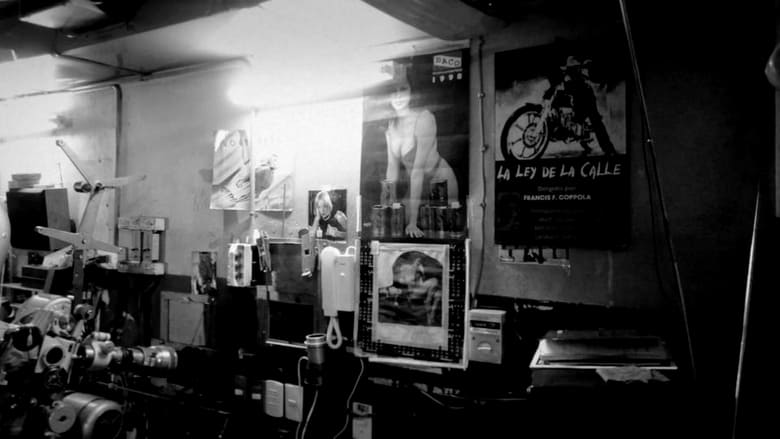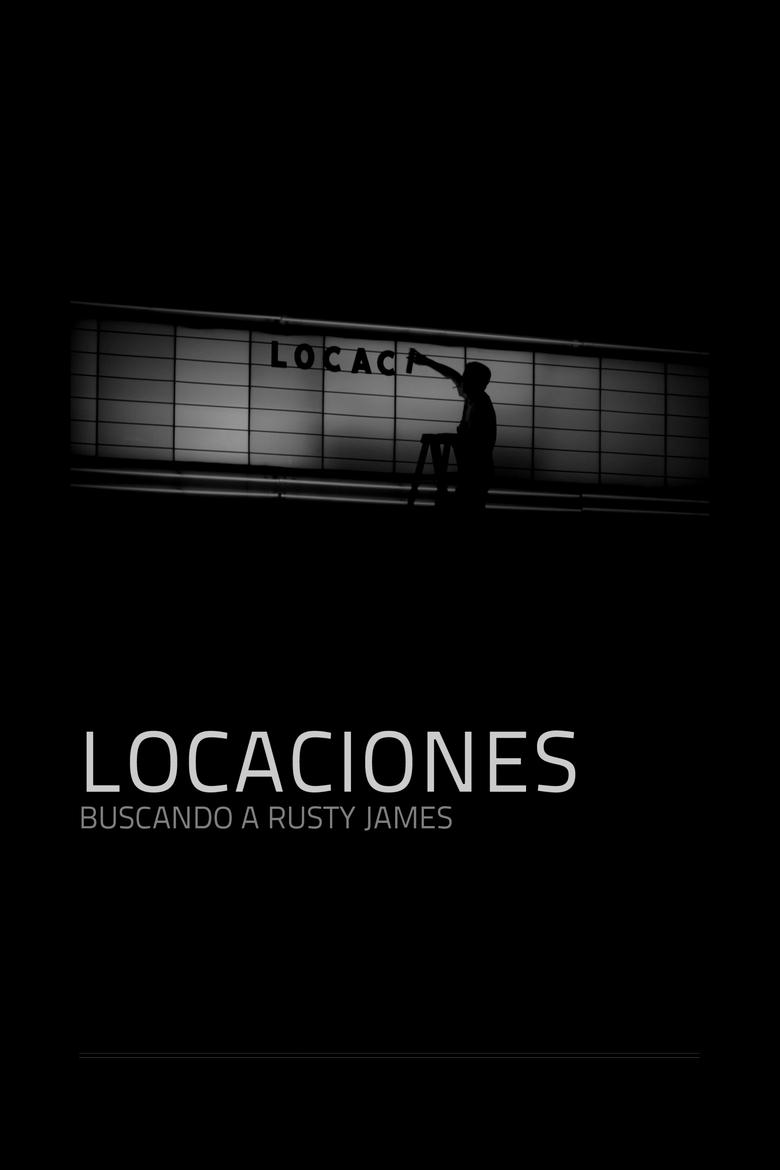

Locations: Looking for Rusty James
Some movies change your life… Rumble Fish did change several
Genres
Overview
A personal meditation on Rumble Fish, the legendary film directed by Francis Ford Coppola in 1983; the city of Tulsa, Oklahoma, USA, where it was shot; and its impact on the life of several people from Chile, Argentina and Uruguay related to film industry.
Details
Budget
$0
Revenue
$0
Runtime
90 min
Release Date
2013-08-30
Status
Released
Original Language
Spanish
Vote Count
1
Vote Average
3
Alberto Fuguet
Self - Narrator (voice)
Ezequiel Acuña
Self (voice)
Ernesto Ayala
Self (voice)
Juan José Becerra
Self (voice)
Fabián Casas
Self (voice)
Leonardo M. D'Espósito
Self (voice)
Juan Manuel Domínguez
Self (voice)
Carlos Flores
Self (voice)
Sebastián Lelio
Self (voice)
René Martín
Self (voice)
Cristián Peña
Self (voice)
Martín Pérez
Self (voice)
Héctor Soto
Self (voice)
Diego Trerotola
Self (voice)
0.0
The Making of Michel Petite
The film shows the behind-the-scenes process of making a documentary about an author known for their autofiction stories. By including its own behind-the-scenes footage, it mirrors the author's storytelling approach, blending the documentary’s creation with the author's narrative technique. In this way, the relationship between reality and fiction is questioned.
| tr
0.0
Um Documentário Brasileiro
2021-05-22 | pt
4.0
Desolate Rome
Chronicles of a male homosexual drug addict in 1980's in voice-over with long take scenes from Rome, television snippets of news of Gulf War and commercials.
1995-10-01 | fr
0.0
Hong Kong Stories
A documentary about Hong Kong cinema mythology via Julien Carbon and Laurent Courtiaud’s experience as screenwriters in the HK film industry, working for Wong Kar-wai, Tsui Hark, Daniel Lee and Johnnie To
2003-01-01 | fr
6.9
The Blade Runner Phenomenon
Ridley Scott's cult film Blade Runner, based on a novel by Philip K. Dick and released in 1982, is one of the most influential science fiction films ever made. Its depiction of Los Angeles in the year 2019 is oppressively prophetic: climate catastrophe, increasing public surveillance, powerful monopolistic corporations, highly evolved artificial intelligence; a fantastic vision of the future world that has become a frightening reality.
2021-05-27 | de
9.2
Stuntwomen
The daily life of Petra, Virginie, and Estelle, three stuntwomen, from the dangerous film sets, where they face all kinds of deadly dangers, to the safety of their homes.
2022-11-09 | fr
6.8
The Future Tense
Staged as a series of voiceover sessions, written with gloriously off-balanced precision and dipped in the color green, THE FUTURE TENSE unfolds as a poignant tale of tales, exploring the filmmakers’ own experiences in aging, parenting, mental illness, along with the brutal history that lies submerged beneath Ireland’s heavy, moist earth.
2022-09-02 | en
4.0
The Village Detective: A Song Cycle
Atlantic Ocean, off the coast of Iceland, July 9, 2016. The surprising discovery of a canister —containing four reels of The Village Detective (Деревенский детектив), a 1969 Soviet film—, caught in the nets of an Icelandic trawler, is the first step in a fascinating journey through the artistic life of film and stage actor Mikhail Ivanovich Zharov (1899-1981), icon and star of an entire era of Russian cinema.
2021-04-27 | en
4.3
Nice Girls Don't Stay for Breakfast
In the late 1990s, iconic photographer Bruce Weber barely managed to convince legendary actor Robert Mitchum (1917-97) to let himself be filmed simply hanging out with friends, telling anecdotes from his life and recording jazz standards.
2019-02-27 | en
7.8
Zombies in the Sugar Cane Field: The Documentary
Tucumán, Argentina, 1965. Three years before George A. Romero's Night of the Living Dead was released, director Ofelio Linares Montt shot Zombies in the Sugar Cane Field, which turned out to be both a horror film and a political statement. It was a success in the US, but could not be shown in Argentina due to Juan Carlos Onganía's dictatorship, and was eventually lost. Writer and researcher Luciano Saracino embarks on the search for the origins of this cursed work.
2019-11-08 | es
0.0
White Noise
A reflection on the fate of humanity in the Anthropocene epoch, White Noise is a roller-coaster of a film, a whirlwind of sounds and images. The fourth feature-length work by Simon Beaulieu, this film essay plunges viewers into a subjective sensory adventure—a direct physical encounter with the information overload of daily life. White Noise transforms the imminent collapse of our civilization into a visceral aesthetic experience.
2019-11-16 | fr
9.0
Stunts: A Taste for Risk
The amazing story of stunts, men and women who risk their lives every day on set to get the perfect action scene.
2023-11-30 | de
4.9
Visions of Europe
Twenty-five films from twenty-five European countries by twenty-five European directors.
2004-05-01 | en
7.5
We Were Once Kids
In the early nineties, before the massive gentrification of many of New York's then slums, several young people from very disparate backgrounds left their broken homes and ventured onto the brutal streets of the city. United by their love of skateboarding, they formed a family and built a unique lifestyle that eventually inspired Kids, a groundbreaking and outrageous film directed by photographer Larry Clark and released in 1995.
2021-06-10 | en
6.1
Las cinéphilas
Six elderly retired women, two from Buenos Aires, Argentina; two from Montevideo, Uruguay; and two from Madrid, Spain, have something in common, despite their different interests and lives: they go to the movies almost every day.
2017-04-20 | es
6.0
Satan's Blood: recuerdos de «Escalofrío»
The story of the shooting of Satan's Blood (Escalofrío), a film directed by Carlos Puerto in 1978.
2016-10-15 | es
6.9
[REC]: Horror Without Pause
The horror film [REC] — directed by Jaume Balagueró and Paco Plaza, and released in 2007 — was an unprecedented triumph for Spanish fantasy cinema. Fifteen years later, those responsible for the creation and worldwide success of this cinematic milestone decode its keys and resurrect the myth.
2022-10-28 | es
0.0
The Concavenator Valley
Three researchers work on a paleontological project focusing on two dinosaurs: one fictional, the one created by special effects genius Ray Harryhausen for the film The Valley of Gwangi (1969); the other real, the Concavenator corcovatus, whose remains were discovered in 2003 at the Las Hoyas site, in the province of Cuenca (Spain), very close to where the filming took place.
2023-09-28 | es
6.9
Wild Session
A walk through the golden age of Spanish exploitation cinema, from the sixties to the eighties; a low-budget cinema and great popular acceptance that exploited cinematographic fashions: westerns, horror movies, erotic comedies and thrillers about petty criminals.
2019-12-13 | es
0.0
Four Shorts on Architecture
A visual essay on contemporary Kiwi architecture.
1975-10-10 | en